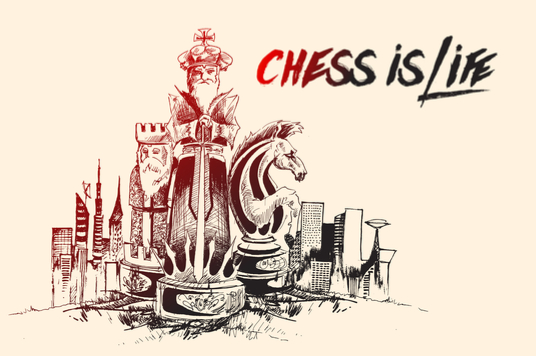
Life Lessons From Chess
Chess is just a game, right? You may be surprised to discover how many principles of chess apply to real life! Let’s learn some life lessons from chess.
Chess is a fun game. But did you know that you can learn some surprisingly helpful lessons from it? Here are some principles that apply to the game and to life.
1. Set Yourself Up for Success
Your first move of the game sets the tone. When you are young, you have a lot of decisions to make. If you choose wisely, you can set yourself up for success later in life. This principle, though, doesn’t only apply to young people. Every time you make a new beginning somewhere, such as when you start a new job or move to a new neighborhood, you can set the tone of your experience by making a smart first move.

2. Train Yourself to Notice Opportunities, Even the Inconspicuous Ones
Most opportunities are obvious: You see a job ad online that fits your skills, for example, or a local community college offers a free class in a subject that interests you. However, you may be missing many less apparent opportunities. You can expose yourself to the possibilities by networking, volunteering, and being willing to take risks. Be open-minded and observant, and you will see new opportunities arise every day.
3. Make Opportunities Where There Are None
In chess, you can make defensive or offensive moves. If you are always defending your territory, you will never win the game. Sometimes you have to take the offense to capture your opponent’s piece. You could spend a lifetime waiting for opportunities that may or may not ever come to you. Instead, do something! Ask the person you have a crush on to go on a date. Invent something to solve a problem you have. Turn in your resume to companies that aren’t advertising open positions. Be creative, and you will begin to see your power to create your opportunities.
4. You Are in Control
Life coach Tony Robbins gives this advice: “Expect change. Analyze the landscape. Take the opportunities. Stop being the chess piece; become the player. It’s your move.” Think about what you want from life. Then, ask yourself: What is preventing me from having those things? Work on eliminating those things one at a time, and eventually, nothing will be standing in the way of your success. On the other hand, once you have identified what keeps you from your ideal way of living, you may realize that some obstacles are insurmountable. In that case, you will have to follow the mandate of the serenity prayer written by theologian Reinhold Niebuhr. It says, in part, that we “accept with serenity the things that cannot be changed... change the things which should be changed... And [develop] the wisdom to distinguish one from the other.”

5. You Can’t Understand Everyone All the Time
A good strategy for board games like chess is to try to anticipate what your opponent will do next. If you know your opponent well, you can thwart his attacks or set traps for him based on your predictions. In life, many people are predictable, but some people do nonsensical things! You can drive yourself nuts trying to figure out why someone said or did a certain thing. If you can’t stand not knowing, you will have to ask the person directly. But most of the time, you can simply shrug it off. Who knows why people do what they do?
Life is confusing. These five lessons about it aren’t the only ones we can learn from chess. Both chess and life are rewarding subjects that you could ponder about for a long time! What lessons have you learned about life from this fascinating game?